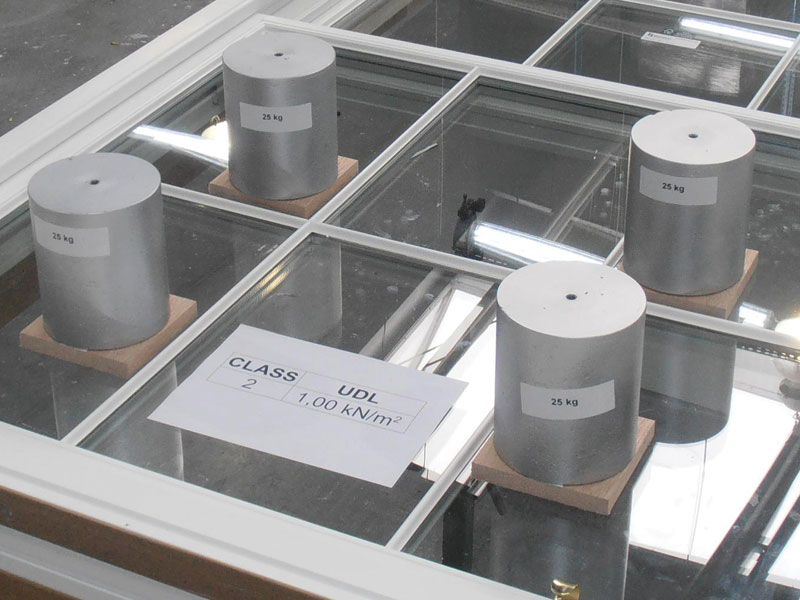Taking Down Barriers To Compliance With Part K In Timber Windows
June 6, 2017 | Blog | Written by Nicola Harrison
Windows are often being used as a barrier in place of an actual barrier or balustrade, and building inspectors are now looking for evidence that the glass in the windows can withstand the forces of impact set out in British Standard BS6180. So, where do you go for proof, and how are you supposed to tackle this?
It’s a question we come across regularly at Bereco, one which ensures a new build development complies with Part K Section 3 ‘Protection from falling’.
What is BS6180?
The British Standard BS6180 is a test that barriers and balustrades undergo to prove they can withstand impact.
There are two loads that a window had to withstand in order to comply, the first for domestic applications where 0.36kN or 36kg is applied per meter length over the window. The second is for communal areas of flats or townhouses where 0.74kN or 74kg is applied per meter length over the window. In both tests, when the loads are applied, windows are allowed to deflect by up to 18mm no more in order to comply with the requirements laid out in the standard BS6180.
Barriers compliant with this test will generally be used on first floors or above on a development’s outside windows to prevent falling in accordance with Part K, but the cost of these can be an investment in themselves, one which could be avoided or significantly reduced if the windows could prove their effectiveness as a barrier; so the question is can they?
The answer is yes.
In order to prove fully and without a doubt that our wooden windows are fully compliant and to help support our customers working to Building Regulations and for those looking to improve safety in their home, we have undertaken the testing of our sash window to the British Standard BS6180.
Our wooden sash window was chosen for testing because of its generally tall standing and with that falling below 800mm from the FFL and being the window style most likely to be needed to act as a barrier over the likes of a casement window.

How it performed?
To put into context what our sliding sash window has been subjected to, the loads in this test are expressed in kN/m (Kilo Newton Meter). In simple terms, 1kN is equal to 100kg, 220lbs or 16 stone, the weight of a giant panda or adult bear. In the test for domestic applications, our sash window deflected by only 1.58mm, and in the communal application, it deflected just 2.99mm.
Our internally glazed timber sash windows are well-made with a secure and robust glazing infill. They have only minimum deflection, well within the permissible limits of the test and standard requirements.
At a test of 1.0kN or 100kg, the deflection of the glass in its frame was only 5.30mm. So should a fully grown adult bear sit on the glass on the bottom sash of our sash window, it would only flex by 5mm!




